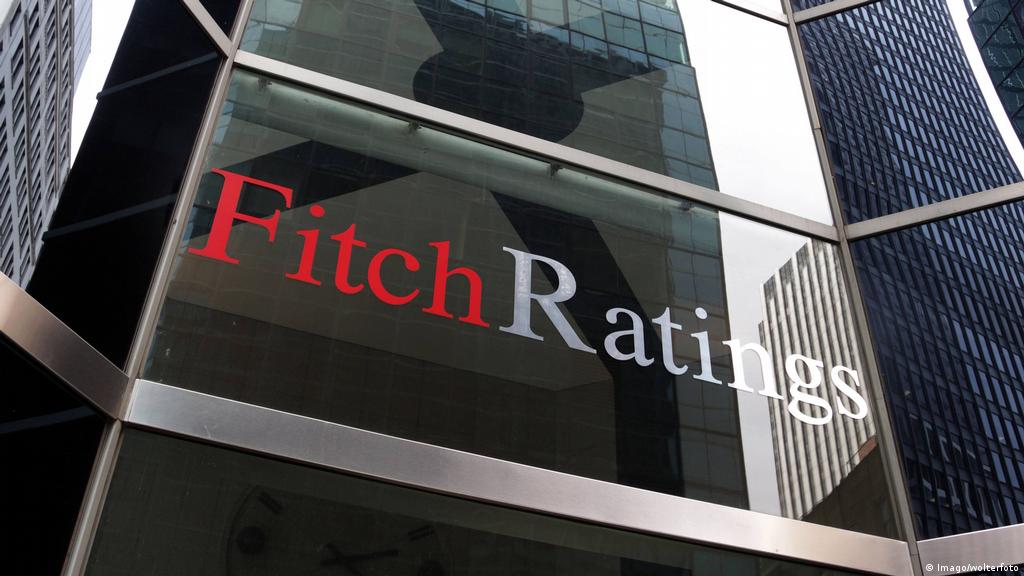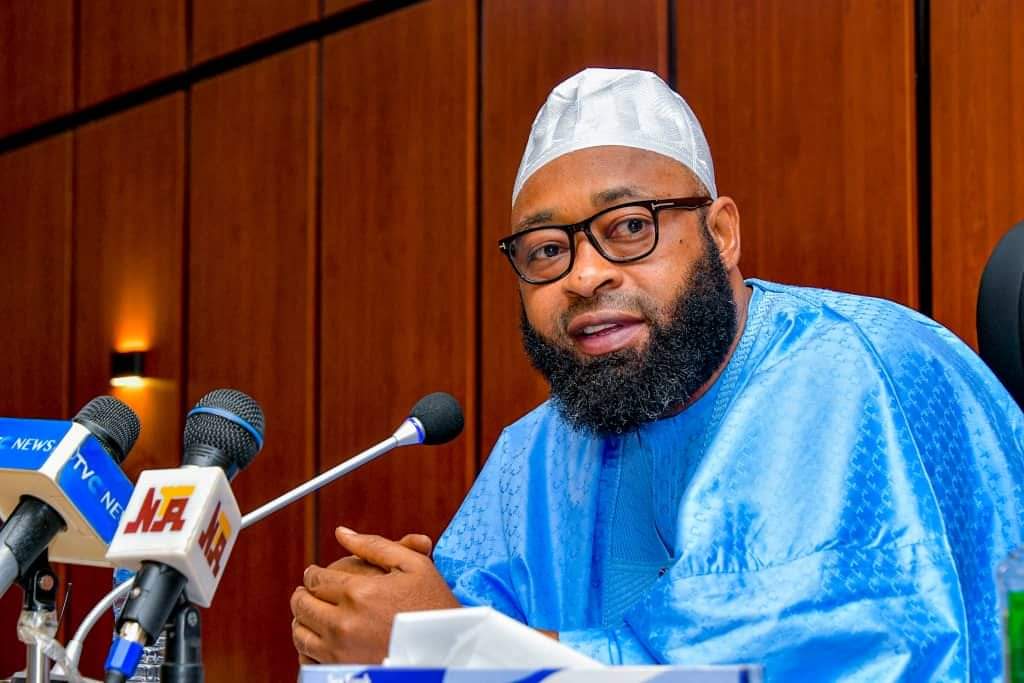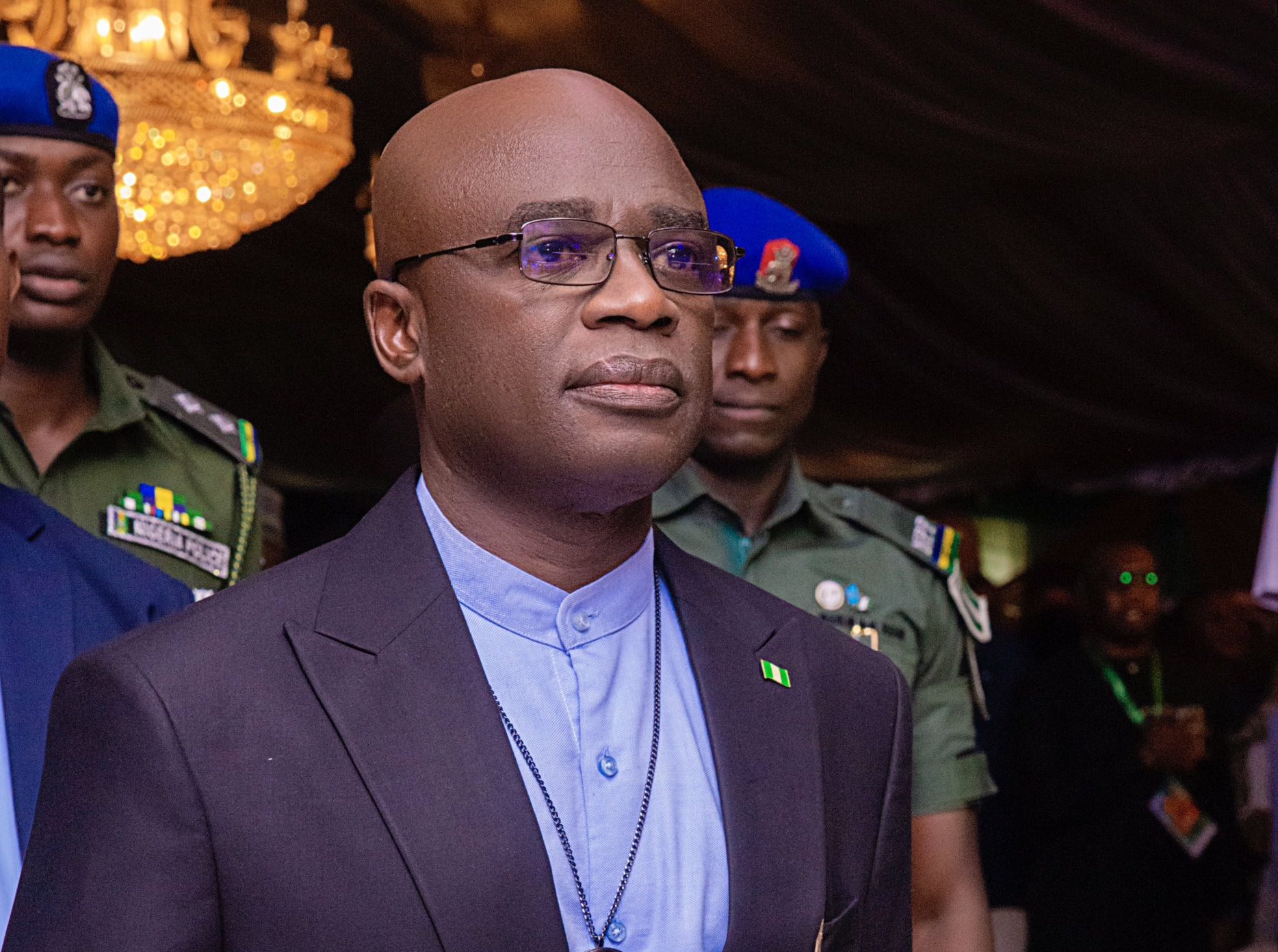Economy
Nigeria’s Rocketing Inflation Dampening Economic Growth, Eroding Purchasing Power

A Fitch Ratings report on Thursday stated that Nigeria’s rising inflation was dampening the country’s economic growth and eroding consumer purchasing power.
According to the ratings agency, persistently high inflation remains a key macroeconomic weakness, contributing to Nigeria’s relatively modest growth rates and weighing on external liquidity by discouraging financial account inflows.
Consequently, Fitch projected Nigeria’s growth at 3.1 per cent in 2022 with high oil prices expected to lift oil receipts, which together with a post-pandemic recovery in activity should support the non-oil sector growth.
“Still, high inflation this year will dampen growth by eroding consumer and business purchasing power. The oil sector’s inability to raise production will provide a further obstacle to higher growth,” it added.
It noted that the decision by the Central Bank of Nigeria (CBN) to raise the main policy interest rate sharply in May does not signal a fundamental shift in the country’s unorthodox monetary policy, which it noted will continue to impede efforts to rein in inflation.
“We believe Nigeria’s complex policy approach will be maintained at least until the next presidential election in February 2023. A significant strengthening of macroeconomic performance appears unlikely in the near term, despite the supportive effects of higher global oil prices for the economy.
“The Russia-Ukraine war’s impact on global prices, notably for food and energy, has seen inflation accelerate in 2022. Consumer prices rose 17.7 per cent yoy in May, up from last year’s low of 15.4 per cent in November,” it said.
Fitch stressed that it now forecasts Nigeria’s inflation to average 17 per cent in 2022, unchanged from the 2021 average. “In March 2022, we had predicted inflation this year would average 14.6 per cent,” it added.
The report stated that the authorities had planned to phase out fuel subsidies in 2022, but they are now unlikely to be removed before 2023. This, it pointed out helps to contain 2022 inflation, but noted that the cost of the subsidy – borne by the Nigerian National Petroleum Corporation (NNPC) – has reduced NNPC transfers to government.
“ As a result, we forecast the general government deficit to narrow only moderately to 3.4 per cent of Gross Domestic Product (GDP) this year, from 4.2 per cent in 2021,” it posited.
Fitch said it had expected at least one interest-rate hike in 2022, but the 150bp increase in the main policy rate, to 13 per cent, on 24 May was larger than it had anticipated.
“Further increases are possible, as officials with the CBN have indicated a preference for real interest rates to be less steeply negative. Moreover, we believe the CBN will use the Cash Reserve Ratio and the issuance of CBN special bills to tighten liquidity.
“The CBN is using these discretionary measures to inject or withdraw liquidity from the financial system, as well as influencing borrowing costs for specific sectors through various loan guarantees and direct support facilities,” the ratings agency added.
It explained that this has made monetary policy difficult to gauge and created a segmented interest-rate environment, impeding the transmission of monetary policy.
“The CBN adopted the Investor and Exporter (IEFX) window as the official exchange rate in May 2021. However, it continues to use administrative controls to manage the demand for foreign exchange, which has caused economically damaging shortages.
“The central bank’s inflation-fighting efforts have been complicated further by its lending to the federal government. The International Monetary Fund (IMF) figures show that the CBN’s net claims on the central government rose by roughly 23 per cent yoy in January 2022,” it said.
According to Fitch, while CBN officials have suggested that raising policy interest rates could moderate government domestic borrowing, however, the interbank treasury bills true yield remains low.
Fitch out true yield at 3.9 per cent for three-month bills at end-May, albeit up from 3.3 per cent at the end of April.
Economy
Bago inaugurates empowerment programme for 716 youths in Niger

Gov. Umaru Bago of Niger State has inaugurated an empowerment programme for 716 youths sponsored by a state lawmaker, Alhaji Sani Umar (APC-Kontagora 1), in Kontagora Local Government Area of the state.
While inaugurating the programme that involved disbursement of funds on Sunday in Kontagora, he said it would enable youths to acquire skills for self-reliance.
Bago, represented by his deputy, Mr Yakubu Garba, commended the lawmaker for the empowerment programme, which he described as people-centred.
He urged the beneficiaries to make good use of the support given to them, saying that the programme was designed to have a positive impact on their lives.
He said that the state government would continue to come up with policies th positive impact on the lives of the people, especially women and youths.
Bago said that youth empowerment was crucial to fighting unemployment, restiveness and hardship.
He commended the state legislators for their support and collaboration, attributing the government’s successes to their continued assistance and foresight.
The governor reiterated his resolve to foster cohesion between the executive and legislature, ensuring the delivery of democracy dividends to the electorate.
In his remarks, Alhaji Abdulmalik Sarkindaji, Speaker of the House of Assembly, commended the lawmaker for the initiative aimed at empowering the youths to become self-reliant.
He lauded the governor for not interfering with legislative engagements, and for promoting democratic principles in governance and the polity.
Earlier in his address, Umar, the sponsor of the programme, said the empowerment was aimed at reducing unemployment and restiveness among youths in his constituency.
He thanked the governor for his support and encouragement for the programme.
Also speaking, Alhaji Aminu Bobi, Chairman of the All Progressives Congress (APC) in Niger, thanked the governor for his support and administrative prowess, which he said had brought significant changes to the state.
One of the beneficiaries, Aisha Mohammed, thanked the lawmaker for the gesture and promised to make judicious use of the funds to better her life.
The News Agency of Nigeria (NAN) reports that the event was attended by top government officials, traditional rulers, and other stakeholders in the stat
Economy
Benue at 49: Governor Alia’s Vision for Economic Prosperity and Infrastructure Growth

As Benue State celebrates its 49th anniversary, Governor Hyacinth Alia has emphasized his commitment to driving the state to unprecedented levels of economic prosperity and infrastructural development.
In a statement signed by his Chief Press Secretary, Mr. Tersoo Kula, and made available to newsmen on Monday in Makurdi, Alia outlined the significant reforms his administration has set in motion since he assumed office.
“Less than two years into our administration, we have achieved remarkable breakthroughs, unprecedented in the history of the state,” said Alia.
The governor highlighted key achievements, including the rollout of programs aimed at boosting agricultural productivity and agribusiness to ensure food security and improve livelihoods. “We have rehabilitated roads, opened new ones, constructed and fixed public facilities to make Benue more accessible, enhancing economic growth,” he stated.
Alia also underscored the administration’s focus on healthcare, pledging to advance healthcare facilities to ensure quality and accessible services for all citizens. “Our resolve is to take the state where every citizen experiences prosperity, security, and opportunity,” he added.
The governor stressed that achieving these goals requires the collective efforts of all Benue citizens. “This target cannot be achieved alone. It calls for the collaborative determination of all stakeholders, community leaders, traditional rulers, business owners, and our energetic youth. Together, the administration can build a future that mirrors our joint desires,” Alia urged.
As the state marks its 49th anniversary, the governor called on the people to remain steadfast in their commitment to promoting Benue’s growth. “I extend a hand of fellowship to all stakeholders to join hands with us in this noble endeavour,” he concluded.
Economy
NCS Records Historic ₦6.1 Trillion Revenue in 2024

The Nigeria Customs Service (NCS) has achieved a historic milestone, collecting a record ₦6.1 trillion in revenue in 2024, surpassing its ₦5.1 trillion target by ₦1.03 trillion. This represents a 20.2% increase above the target and an impressive 90.4% rise from the ₦3.2 trillion collected in 2023.
Speaking at a press briefing in Abuja on January 14, 2025, the Comptroller-General of Customs, Bashir Adewale Adeniyi, attributed the remarkable performance to strategic reforms, enhanced operational efficiency, and strong alignment with government policy objectives. “This growth is historic as it marks the highest year-on-year increase recorded by the Service in recent times,” he noted.
The record-breaking revenue is segmented into ₦3.66 trillion for the Federation Account, ₦816.9 billion for Non-Federation Account Levies, and ₦1.63 trillion in Value Added Tax (VAT) on imports.
Adeniyi highlighted the Service’s effort to balance revenue collection with trade facilitation, granting concessions worth ₦1.68 trillion to stimulate industrial growth while tightening controls to prevent abuses.
The Service also achieved remarkable progress in trade facilitation, recording a 179.3% increase in total trade value to ₦196.94 trillion in 2024, compared to ₦70.5 trillion in 2023. This growth was driven by a surge in the export trade, which saw a 219.5% increase in value to ₦136.65 trillion.
Significant advancements were made in customs operations, including the introduction of the Advanced Ruling System and the Authorized Economic Operator (AEO) programme. The latter has reduced cargo clearance times to an average of 43 hours for AEO-certified companies. Additionally, the indigenously developed digital clearance platform, “B’Odogwu,” generated ₦31 billion in revenue during its pilot phase.
In 2024, the NCS received international acclaim, advancing 33 places in the Presidential Enabling Business Environment Council (PEBEC) rankings and being recognised among the top five agencies for trade facilitation. Strategic partnerships, such as with the Healthcare Federation of Nigeria, have streamlined the clearance of medical supplies, aligning with the federal government’s health accessibility goals.
The Service’s trade facilitation efforts under the African Continental Free Trade Agreement (AfCFTA) have also bolstered the participation of Nigerian exporters in global markets, with notable representation at the Biashara Afrika forum in Kigali.
Adeniyi attributed these achievements to the support of President Bola Ahmed Tinubu’s administration and the dedication of NCS officers. He reaffirmed the Service’s commitment to leveraging technology, fostering stakeholder collaboration, and enhancing operational efficiency to sustain growth.
-

 Headlines4 years ago
Headlines4 years agoFacebook, Instagram Temporarily Allow Posts on Ukraine War Calling for Violence Against Invading Russians or Putin’s Death
-

 Headlines4 years ago
Headlines4 years agoNigeria, Other West African Countries Facing Worst Food Crisis in 10 Years, Aid Groups Say
-

 Foreign4 years ago
Foreign4 years agoNew York Consulate installs machines for 10-year passport
-

 News1 year ago
News1 year agoZero Trust Architecture in a Remote World: Securing the New Normal
-

 Entertainment3 years ago
Entertainment3 years agoPhyna emerges winner of Big Brother Naija Season 7
-

 Headlines2 years ago
Headlines2 years agoNigeria Customs modernisation project to check extortion of traders
-

 Entertainment2 years ago
Entertainment2 years agoMovie download platform, Netnaija, announces closure
-

 Economy2 years ago
Economy2 years agoWe generated N30.2 bn revenue in three months – Kano NCS Comptroller













